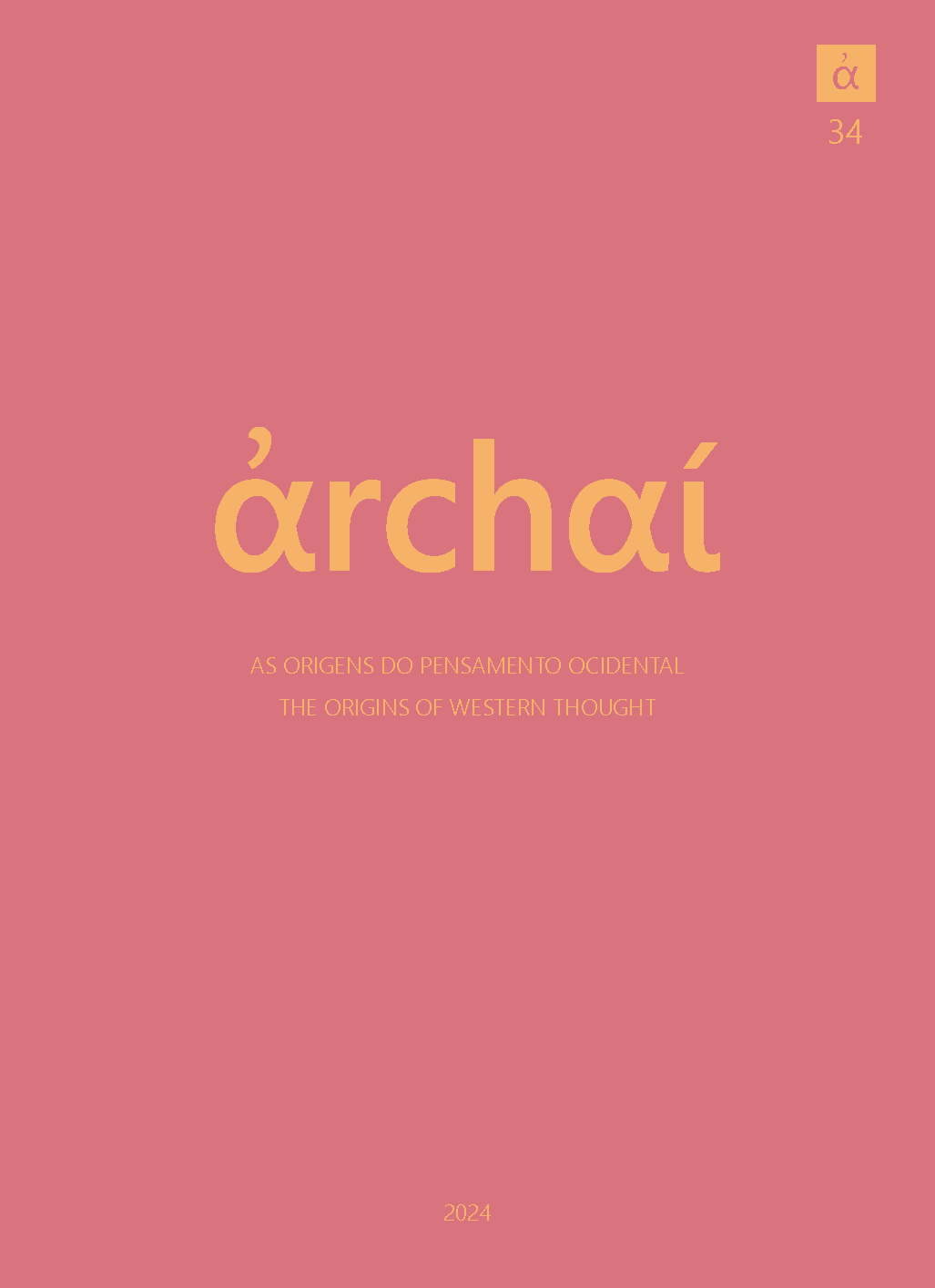The ridiculous philosopher: Socrates as a dramatization of the Platonic thesis on the comical
DOI:
https://doi.org/10.14195/1984-249X_34_13Keywords:
Plato, Comical, Laughter, Ignorance, EnvyAbstract
The purpose of this paper is to show the dramatic importance of the Platonic thesis on the comical within the very economy of the dialogues. The guiding hypothesis will be that the conception that Plato develops about the comical or ridiculous, especially in the Philebus, mixes with the characterization of Socrates and with his way of philosophizing. Therefore, what we intend to demonstrate is that the figure of Socrates, who, as a character of Plato, is the incarnation of the paradigm of philosophical life par excellence, manifests by his own dramatization in the dialogues the very nature of the comical according to the Platonic conceptualization.
Downloads
References
BURNET, J. (ed.) (1961). Plato. Platonis Opera 5 vols. Oxford, Oxford University Press.
LOPES, D. R. N. (trad.) (2011). Platão. Górgias São Paulo, Perspectiva.
MALTA, A. (trad.) (2011). Platão. Apologia de Sócrates, Êutifron e Críton Porto Alegre, L&PM.
MUNIZ, F. (trad.) (2012). Platão. Filebo Rio de Janeiro/São Paulo, Ed. PUC-Rio/Loyola.
NOGUEIRA, A. M.; BOERI, M. (trad.) (2010). Platão. Teeteto 3a. ed. Lisboa, Fundação Calouste Gulbenkian.
PEREIRA, M. H. R. (trad.) (2013). Platão. República 13a.ed. Lisboa, Fundação Calouste Gulbenkian.
ALBERTI, V. (1999). O riso e o risível na história do pensamento Rio de Janeiro, Zahar.
BENARDETE, S. (2009). The Tragedy and Comedy of Life: Plato's Philebus 2a. ed. Chicago, University of Chicago Press.
CAPRA, A. (2018). Aristophanes' Iconic Socrates. In: STAVRU, A; MOORE, C. (eds.). Socrates and the Socratic Dialogue Boston, Brill, p. 64-83.
CHARALABOPOULOS, N. G. (2012). Platonic Drama and its Ancient Reception Cambridge, Cambridge University Press.
GADAMER, H.-G. (1991). Plato's Dialectical Ethics: Phenomenological Interpretations Relating to the Philebus New Haven, Yale University Press.
HACKFORTH, R. (1945). Plato's Examination of Pleasure Cambridge, Cambridge University Press .
HALLIWELL, S. (2008). Greek Laughter: A Study of Cultural Psychology from Homer to Early Christianity Cambridge, Cambridge University Press .
KONSTAN, D. (2011). Socrates in Aristophanes' Clouds. In: MORRISON, D. R. (ed.). The Cambridge Companion to Socrates New York, Cambridge University Press, p. 75-90.
LOMBARDINI, J. (2018). The Politics of Socratic Humor Berkeley, University of California Press.
MENEZES NETO, N. A. (2021). A Poética da Mímesis e a Composição dos Diálogos Platônicos São Paulo, Kotter.
NATHAN, A. R. Plato's Use of Irony A Thesis for the Degree of Doctor in Philosophy. The University of Sidney, 2020.
RUSSELL, D. (2005). Plato on Pleasure and the Good Life Oxford, Clarendon Press.
SOUSA E SILVA, M. F. (2007). Ensaios sobre Aristófanes Lisboa, Cotovia.
STRAUSS, L. (1966). Socrates and Aristophanes Chicago, University of Chicago Press .
TRIVIGNO, F. (2019). Plato on Laughter and Moral Harm. In: DESTRÉE, P.; TRIVIGNO, F. (eds.). Laughter, Humor, and Comedy in Ancient Philosophy Oxford, Oxford University Press, p. 13-34.
Downloads
Published
How to Cite
Issue
Section
License
Copyright (c) 2024 Felipe Ramos Gall

This work is licensed under a Creative Commons Attribution 4.0 International License.
Given the public access policy of the journal, the use of the published texts is free, with the obligation of recognizing the original authorship and the first publication in this journal. The authors of the published contributions are entirely and exclusively responsible for their contents.
1. The authors authorize the publication of the article in this journal.
2. The authors guarantee that the contribution is original, and take full responsibility for its content in case of impugnation by third parties.
3. The authors guarantee that the contribution is not under evaluation in another journal.
4. The authors keep the copyright and convey to the journal the right of first publication, the work being licensed under a Creative Commons Attribution License-BY.
5. The authors are allowed and stimulated to publicize and distribute their work on-line after the publication in the journal.
6. The authors of the approved works authorize the journal to distribute their content, after publication, for reproduction in content indexes, virtual libraries and similars.
7. The editors reserve the right to make adjustments to the text and to adequate the article to the editorial rules of the journal.



